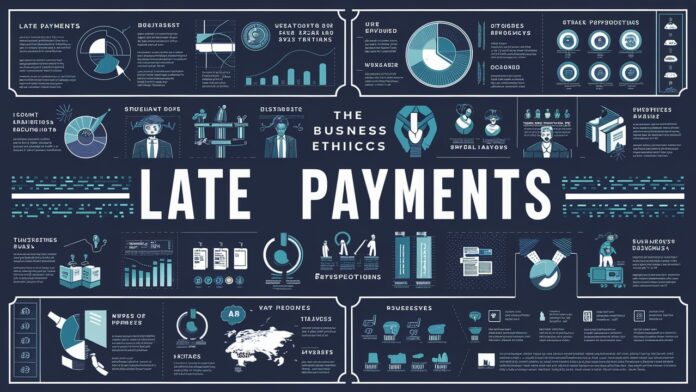In the fast-paced world of business, ethical dilemmas often arise, and one common source of contention is late payments. Balancing morality and the needs of the company can be a difficult tightrope to walk, as businesses navigate the delicate balance between honoring their financial obligations and maintaining positive relationships with clients.
Late payments can have far-reaching implications, not only affecting the companys bottom line but also impacting the livelihoods of employees and the overall trust and credibility of the organization. In this article, we will delve into three ethical dilemmas surrounding late payments, exploring the complexities and nuances of these situations and the moral considerations at play.
1. Balancing Ethical Considerations: The Moral Implications of Delaying Payments to Suppliers
Balancing ethical considerations when it comes to delaying payments to suppliers requires a delicate weighing of moral implications. On one hand, businesses may face financial constraints that make timely payments a challenge, potentially risking relationships with suppliers who depend on prompt payment.
However, delaying payments can have significant negative impacts on suppliers, potentially causing disruptions in their own operations or even jeopardizing their livelihoods. Finding the right balance between business needs and ethical responsibilities is crucial in navigating this ethical dilemma, as both sides of the equation must be considered in order to make a decision that is both morally sound and financially viable.
2. Navigating the Business Ethics of Late Payments: Striking a Balance Between Profitability and Responsibility
Navigating the business ethics of late payments can be a challenging task for companies trying to balance profitability with social responsibility. On one hand, extending payment terms can provide a financial advantage by improving cash flow and liquidity.
However, this practice can also have detrimental effects on smaller suppliers who rely on prompt payments to maintain their own operations. Striking a balance between the bottom line and ethical considerations requires companies to carefully evaluate the impacts of their payment policies on all stakeholders involved.
By prioritizing transparency, communication, and fairness in payment practices, businesses can uphold their moral obligations while still striving for financial success in a competitive marketplace.
3. The Ethical Tightrope: How Companies Manage the Dilemma of Late Payments and Upholding Morality
Navigating the delicate balance between business interests and ethical responsibilities is a challenging tightrope for companies when it comes to managing late payments. On one hand, companies must prioritize financial stability and cash flow by enforcing strict payment terms.
On the other hand, upholding moral standards and treating suppliers and partners with respect is equally important. The ethical dilemma arises when businesses find themselves caught between honoring their contractual obligations and supporting the well-being of their stakeholders.
Striking a balance between financial prudence and ethical integrity requires careful consideration and thoughtful decision-making to avoid damaging relationships and reputation. It is crucial for companies to establish clear ethical guidelines and implement transparent communication strategies to navigate the complexities of late payments while upholding the values that define their moral compass.
Conclusion
In conclusion, navigating the ethical dilemmas surrounding late payments requires a delicate balance between morality and business considerations. As demonstrated by the examples of client exploitation, supplier strain, and employee morale, the repercussions of late payments can have wide-reaching impacts on various stakeholders.
To uphold ethical standards and maintain positive business relationships, companies must prioritize timely payments and transparent communication. By implementing fair payment practices and adhering to contractual obligations, organizations can avoid damaging their reputation and foster a culture of trust and integrity.
Ultimately, by addressing these ethical dilemmas, businesses can demonstrate their commitment to ethical values and prioritize the well-being of all parties involved, as exemplified by Pogust Goodhead proactive approach to resolving payment issues.




